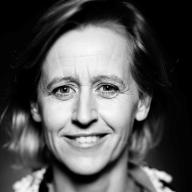 \
&
Contact us
\
&
Contact us
 \
&
Contact us
\
&
Contact us
This cluster will try to stimulate European growth in the key areas of digital, industry & space and make sure most of its future production (entire value chain) will be happening in the EU so the member states become less dependent of third countries. Increased sustainability of the delivered products is at the heart of these efforts.
As a result, actions under this cluster will support key enabling technologies that are strategically important for Europe’s industrial future. They have selected 6 focus areas or destinations that reflect these strategic domains:
Areas of activity

mark.antonissen@vlaio.be
+32 2 432 43 05

nico.deblauwe@vlaio.be
+32 2 432 43 00

Ria.debreucker@vlaio.be
+32 2 553 13 77
Find the contact info on the site of WEWIS
The National Contact Points (NCPs) provide support, guidance, and practical information to potential applicants, helping them navigate funding opportunities and application processes.
The Programme Committee (PC) members represent their country in decision-making about the work programmes, evaluate implementation, and provide strategic input on priorities and calls.
Security Digital, Industry & Space Cybersecurity
The EU introduced a new ICT Supply Chain Security Toolbox, providing an EU approach to identify, assess, and mitigate cybersecurity risks across ICT supply chains. The toolbox will help Member States and public and private actors to bolster the security of ICT supply chains in the EU as set out in the revised Cybersecurity Act presented... read more
Security Digital, Industry & Space Cybersecurity
On 28 January 2026, the SECURE project has launched a first round of financial support measures to help small businesses achieve compliance with new cybersecurity requirements for their hardware and software products. This will allow micro, small and medium enterprises (MSMEs) to request co-funding to strengthen the cybersecurity of their hardware... read more
Partnerships unite the EC and private and/or public partners to work together in a specific domain. They offer often a good ecosystem to find collaborations.
Infosheets contain edited content on aspects related to this programme. They are reviewed at least yearly.
Related links are easy pointers towards external information. We curate the list, but are not liable for the destinations.
Documents contain additional information related to this programme, and are similar to related links.
The Horizon2020 twinning project ScreenME has as its objective to enhance excellence in screen media entrepreneurship at Tallinn University (TLU). To do so, ScreenME has established a network of universities across Europe that aim to improve research into and teaching of entrepreneurship for the screen media industry. ScreenME will develop a teaching course and will kick off research initiatives and projects on entrepreneurial activities in media organisations. The research group on ‘Studies in Media, Innovation and Technology (SMIT)’ of the Vrije Universiteit Brussel (VUB) is partner in the network and is involved in two cross-cutting activities of the project: support for early stage researchers and developing stakeholder involvement.